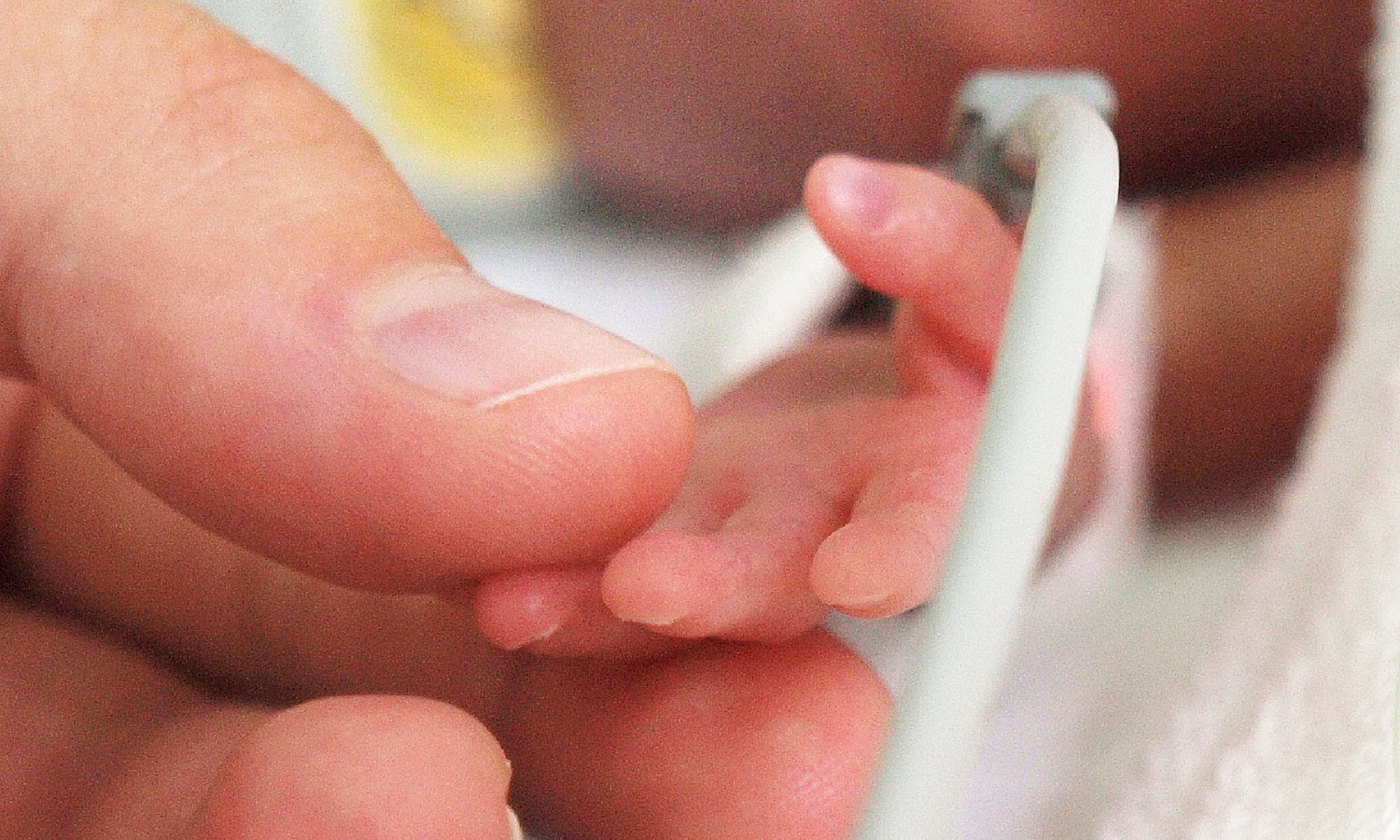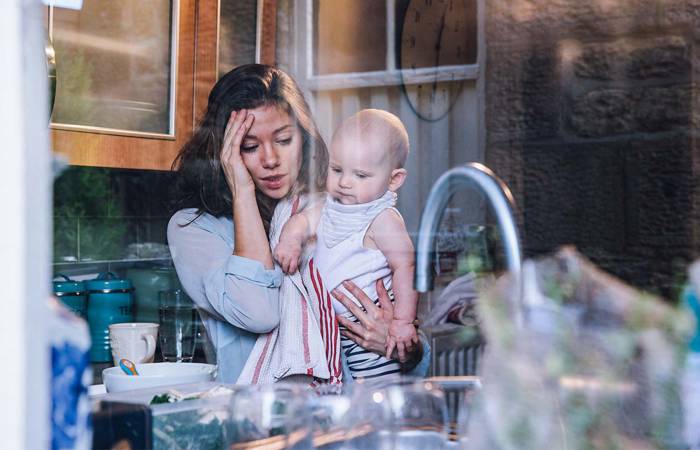Like what you see?
Sign up to receive more free parenting advice.
Thank you for subscribing to our newsletter!
Child Development

Credit: iStock.com/IvanJekic
Almost one in ten babies are born pre-term in Australia, according to the latest Australia's mothers and babies report by the Australian Institute of Health and Welfare (AIHW).
The majority of pre-term babies are born between 32 and 36 weeks. Babies born prior to 32 weeks are categorised as very pre-term.
The trauma of a pre-term birth can be long-lasting.
“When a baby is born prematurely, parents are initially in shock and their biggest fear is the survival of their newborn,” says Kylie Pussell, CEO and co-founder of Miracle Babies, and parent to three premature babies.
Pre-term babies are usually stabilised immediately after the birth and transferred to the neonatal intensive care unit (NICU), where they receive treatment dependant on their condition.
“Parents report a range of feelings in the immediate aftermath of the birth,” Kylie explains.
“Mothers tend to feel guilty that they couldn’t carry their baby to full term, while fathers or partners tend to feel torn about who to stay with – the mother who might still be in the delivery room physically and emotionally recovering, or their newborn who might be taken to the nursery for treatment.
“There are also the emotions of not always being able to be there for your baby when they are undergoing urgent procedures in the NICU.
“It’s really not the experience you envisioned when you fell pregnant – it can be emotionally traumatic.”
Dependant on the baby’s health, most will be discharged when they reach their due date, however, Kylie says that some babies with significant breathing or feeding challenges might stay for longer.
“Pre-term babies still need to grow and develop, just as they would in the womb, and this can be difficult for parents as these vulnerable babies are at higher risk of medical challenges,” she adds.
While the baby may stay in the hospital for weeks or even months, the mother is usually discharged within days, in the same manner as any normal delivery, dependant on her condition.
“Being discharged while your baby is still admitted to hospital can sometimes be tougher than the birth,” says Kylie.
“For rural or regional families, this can be especially tough as not only is their support system not always available to them, but there is the financial burden of staying near the hospital for an extended period of time.
“In cases of families with older children, sometimes parents can’t even be with each other while one parent cares for them and the other remains at the hospital.”
Research by the Murdoch Children's Research Institute (MCRI) suggests that the mental health of parents of very pre-term babies are more negatively affected, not only in the first year but even seven years after the birth.
While almost 16 per cent of all new mothers in Australia experience postnatal depression (PND) after having a baby, the MCRI research found that number jumped to 40 per cent for mothers of very pre-term babies.
The research also found that mothers of very pre-term babies were more likely to experience significant mental health problems when their children were two and seven years old.
When a baby is born prematurely, parents are initially in shock and their biggest fear is the survival of their newborKylie Pussell, CEO and co-founder of Miracle Babies
Stay up to date with the latest news and articles from First Five Years
Thank you for subscribing to our newsletter!
Beyond the first year
“The guilt can stay with you long after those initial weeks,” says Kylie.
“There is the guilt that your baby had such a tough start to life, they really had to fight hard to survive.
“Later on, anything that happens with your child, whether they don’t hit their milestones, they are slower to develop in some way, or they struggle with their social skills, parents tend to worry if it’s because they were born prematurely.”
Research suggests that when pre-term and very pre-term children start school, they are at a higher risk of learning difficulties, behavioural issues and executive functioning.
An Australian study in 2019 found that weekly increases in gestational age beyond 34 weeks were associated with higher mathematics scores for children aged eight or nine years old, independent of their working memory.
Another Australian study in 2020 had a similar finding, children born pre-term are at risk of significant academic difficulties in reading and mathematics compared to term-born children.
A UK study pointed to the fact that pre-term children were enrolled in school based on their actual date of birth, instead of their due date, which sometimes meant they were enrolled earlier than would be expected. They found that by sending pre-term children too early to school appeared to have consequences for them in their adolescent and adult years.
Ongoing research by MCRI showed that premature children have three times the risk of disorders like autism, anxiety and ADHD.
“Miracle Babies has launched a hub which provides parents of pre-term babies with an enormous amount of information for when their child is at primary school, high school and even into adulthood,” says Kylie.
To best support pre-term babies in school, Kylie recommends talking to the educational providers about their child’s birth story.
“It’s about giving teachers the information and tools for how you can work together to best support your child’s needs,” she adds.
Support after pre-term birth
To support parents in the immediate aftermath of a pre-term birth, Miracle Babies runs a support program called the NurtureProgram
“We run a 24-hour helpline that families can call to speak to a trained support person who has experienced having a premature or sick baby,” Kylie explains.
“Calling that helpline is often the first connection to talking to someone else who has been through it, who can understand and empathise.”
The program also provides hospital visits to new parents, as well as support groups after discharge.
In 2021, the Impact Institute found the benefits of peer support programs were overwhelming positive.
They found they increase parental engagement within the NICU, improved parental mental health and reduced parental stress, improved parental/infant attachment and bonding, improved social connection, improved perceived social support for parents/families, empowered parents to make informed health choices and improved breastfeeding success.
“Most NICUs have social workers and nurses who are a great support to parents,” adds Kylie.
Kylie recommends that friends and family need to be patient with parents of pre-term births as the experience can be quite overwhelming. Simply being present for them and supporting them with daily life chores can be the support they need.
Kylie’s tips on how to support parents with pre-term births:
- Encourage the parents to access support through Miracle Babies.
- When someone goes through something traumatic, they can find it hard to articulate how they are feeling. Sometimes just being there and holding their hand or letting them know you are there without expecting them to put all their emotions and thoughts into words just yet, can be a great support.
- Help with chores, whether that is looking after older children, cleaning or making meals. Life doesn’t stop, even when you are going through something hard.
- Let them guide you about what they need and how you can help.






